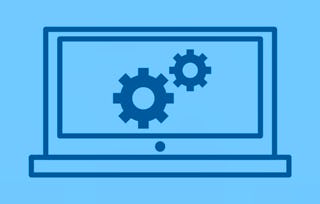Master the core principles and advanced mechanisms of operating systems in this comprehensive course that bridges theory with practical implementation. Explore how modern operating systems manage hardware resources, handle concurrent processes, and provide secure, efficient computing environments. Through hands-on exercises and real-world examples, you'll gain proficiency in process management, memory allocation techniques, synchronization mechanisms, and file system operations. This industry-relevant curriculum prepares you to optimize system performance, troubleshoot complex OS issues, and design robust software solutions—essential skills for roles in software development, system administration, and IT infrastructure management.

Operating Systems
Ends soon: Gain next-level skills with Coursera Plus for $199 (regularly $399). Save now.

Recommended experience
What you'll learn
Master process management and scheduling to efficiently handle multitasking, crucial for roles in system administration and software engineering.
Apply memory management techniques (paging, segmentation) to optimize performance, key for IT infrastructure and systems development.
Design file systems and I/O management for efficient data handling and device communication, ideal for database management and systems programming.
Utilize synchronization and deadlock prevention to ensure system reliability and efficiency, critical for cybersecurity and network administration.
Skills you'll gain
Details to know

Add to your LinkedIn profile
August 2025
46 assignments
See how employees at top companies are mastering in-demand skills

There are 10 modules in this course
Explore the fundamental components of operating systems, their functions, and various computing environments.
What's included
19 videos17 readings4 assignments
Examine different OS interfaces, system calls, and kernel architectures including monolithic, layered, and microkernel designs.
What's included
19 videos14 readings6 assignments
Learn about process concepts, operations, inter-process communication methods, and scheduling queues.
What's included
19 videos19 readings4 assignments1 discussion prompt1 ungraded lab
Understand thread implementation, multithreading models, and multicore programming techniques.
What's included
17 videos16 readings5 assignments1 discussion prompt
Master critical section problems, mutex locks, semaphores, and classical synchronization challenges.
What's included
17 videos17 readings5 assignments1 discussion prompt
Analyze various CPU scheduling algorithms and their performance across different computing scenarios.
What's included
16 videos2 readings4 assignments1 discussion prompt
Identify deadlock conditions and implement prevention, avoidance, and detection strategies.
What's included
14 videos4 readings5 assignments1 discussion prompt
Explore memory allocation techniques including partitioning, paging, and segmentation.
What's included
13 videos4 readings5 assignments2 discussion prompts
Implement demand paging and page replacement algorithms for efficient memory utilization.
What's included
9 videos3 readings4 assignments1 discussion prompt
Understand disk scheduling, RAID configurations, and efficient storage management techniques.
What's included
17 videos3 readings4 assignments
Instructor

Explore more from Software Development
 Status: Free Trial
Status: Free Trial Status: Free Trial
Status: Free Trial Status: Free Trial
Status: Free TrialAkamai Technologies, Inc.
 Status: Free Trial
Status: Free Trial
Why people choose Coursera for their career





Open new doors with Coursera Plus
Unlimited access to 10,000+ world-class courses, hands-on projects, and job-ready certificate programs - all included in your subscription
Advance your career with an online degree
Earn a degree from world-class universities - 100% online
Join over 3,400 global companies that choose Coursera for Business
Upskill your employees to excel in the digital economy
Frequently asked questions
This course provides comprehensive coverage of operating system fundamentals and advanced concepts. Understanding operating systems is critical because they form the foundation of all computing environments, affecting software performance, security, and user experience.
This course is designed for:
- Students in Computer Science and Engineering aiming to grasp OS fundamentals - Software developers seeking to enhance system-level programming skills - IT professionals wanting to improve their knowledge of system performance optimization - DevOps engineers requiring a deeper understanding of the systems they deploy and maintain - Self-learners curious about how computers manage resources at a fundamental level
Upon completion, you'll be able to optimize system performance, design efficient resource allocation strategies, implement effective synchronization mechanisms, and troubleshoot complex OS-related issues in both personal and enterprise computing environments.
More questions
Financial aid available,

